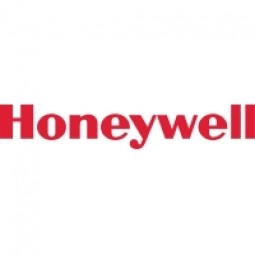Customer Company Size
Large Corporate
Region
- America
Country
- United States
Product
- Honeywell Device Depot Services
- Honeywell Helpdesk Services
Tech Stack
- Android
- Apple iOS
Implementation Scale
- Enterprise-wide Deployment
Impact Metrics
- Productivity Improvements
- Cost Savings
- Customer Satisfaction
Technology Category
- Functional Applications - Remote Monitoring & Control Systems
Applicable Industries
- Equipment & Machinery
- Construction & Infrastructure
Applicable Functions
- Field Services
- Maintenance
Use Cases
- Remote Asset Management
- Predictive Maintenance
Services
- System Integration
- Training
- Cloud Planning, Design & Implementation Services
About The Customer
The customer is a global manufacturer of elevators, autowalks, and similar innovative solutions, operating in more than 50 countries. The company has been an industry leader for decades, providing cutting-edge solutions in vertical transportation. With a workforce of over 2,000 mechanics, the company needed to ensure that its field workers were equipped with the best tools to perform their complex tasks efficiently. The company chose Honeywell as its mobility services provider to accelerate mobile device deployments and increase the productivity of its mechanics in the field.
The Challenge
The elevator manufacturer needed to upgrade the mobile devices of its 2,000 mechanics to models that are easier to use but still practical for field workers with complex jobs. The devices needed to help mechanics manage appointments, submit their time, capture customer signatures, and more. Additionally, the company sought guidance on developing a broad mobile strategy to maximize the value of mobility in its business.
The Solution
Honeywell assisted the elevator manufacturer in migrating to newer Android and Apple iOS devices that feature larger screens, are more cost-effective, and are consumer-grade, making them easier to use. These devices still run sophisticated apps that meet the company's needs. Honeywell also provided Device Depot Services for maintaining and storing the devices, as well as Helpdesk Services for user and technical support. Additionally, Honeywell took a platform-agnostic approach, offering more device and deployment options for both current and future migrations. This approach enabled the company to utilize best-in-class technologies that promote a positive user experience without compromising support or suitability for complex tasks.
Operational Impact
Quantitative Benefit

Case Study missing?
Start adding your own!
Register with your work email and create a new case study profile for your business.
Related Case Studies.

Case Study
Smart Water Filtration Systems
Before working with Ayla Networks, Ozner was already using cloud connectivity to identify and solve water-filtration system malfunctions as well as to monitor filter cartridges for replacements.But, in June 2015, Ozner executives talked with Ayla about how the company might further improve its water systems with IoT technology. They liked what they heard from Ayla, but the executives needed to be sure that Ayla’s Agile IoT Platform provided the security and reliability Ozner required.

Case Study
IoT enabled Fleet Management with MindSphere
In view of growing competition, Gämmerler had a strong need to remain competitive via process optimization, reliability and gentle handling of printed products, even at highest press speeds. In addition, a digitalization initiative also included developing a key differentiation via data-driven services offers.

Case Study
Predictive Maintenance for Industrial Chillers
For global leaders in the industrial chiller manufacturing, reliability of the entire production process is of the utmost importance. Chillers are refrigeration systems that produce ice water to provide cooling for a process or industrial application. One of those leaders sought a way to respond to asset performance issues, even before they occur. The intelligence to guarantee maximum reliability of cooling devices is embedded (pre-alarming). A pre-alarming phase means that the cooling device still works, but symptoms may appear, telling manufacturers that a failure is likely to occur in the near future. Chillers who are not internet connected at that moment, provide little insight in this pre-alarming phase.

Case Study
Premium Appliance Producer Innovates with Internet of Everything
Sub-Zero faced the largest product launch in the company’s history:It wanted to launch 60 new products as scheduled while simultaneously opening a new “greenfield” production facility, yet still adhering to stringent quality requirements and manage issues from new supply-chain partners. A the same time, it wanted to increase staff productivity time and collaboration while reducing travel and costs.

Case Study
Integration of PLC with IoT for Bosch Rexroth
The application arises from the need to monitor and anticipate the problems of one or more machines managed by a PLC. These problems, often resulting from the accumulation over time of small discrepancies, require, when they occur, ex post technical operations maintenance.

Case Study
Robot Saves Money and Time for US Custom Molding Company
Injection Technology (Itech) is a custom molder for a variety of clients that require precision plastic parts for such products as electric meter covers, dental appliance cases and spools. With 95 employees operating 23 molding machines in a 30,000 square foot plant, Itech wanted to reduce man hours and increase efficiency.



